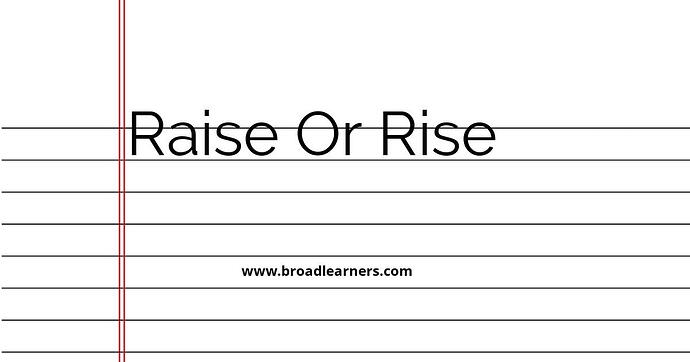'Raise' and 'rise' are commonly confused words in English grammar. Understanding the difference between 'raise' and 'rise' is important to use them correctly in written and spoken English.
'Raise' and 'rise' are both verbs, but they have different meanings and usage.
- 'Raise'
- The word 'raise' is a transitive verb, which means it needs an object to act upon. It means to lift or elevate something or someone to a higher position or level.
- 'Rise'
- The word 'rise' is an intransitive verb, which means it does not require an object. It means to move upward or increase in height, position, or status.
Let's take a closer look at the meanings and usage of 'raise' and 'rise'.
| 'Raise' | 'Rise' |
|---|---|
| The word 'raise' is used when something or someone is lifted or elevated. | The word 'rise' is used when something moves upward or increases in height, position, or status. |
|
|
To remember the difference between 'raise' and 'rise', it can be helpful to remember that 'raise' requires an object, while 'rise' does not.
Here are some examples of correct usage:
- Can you please raise the window? (lifting the window)
- She raised her hand to answer the question. (lifting her hand)
- The sun rises early in the morning. (moving upward)
- The prices of goods are rising due to inflation. (increasing in price)
Remembering the correct usage of 'raise' and 'rise' will improve your grammar and communication skills.
